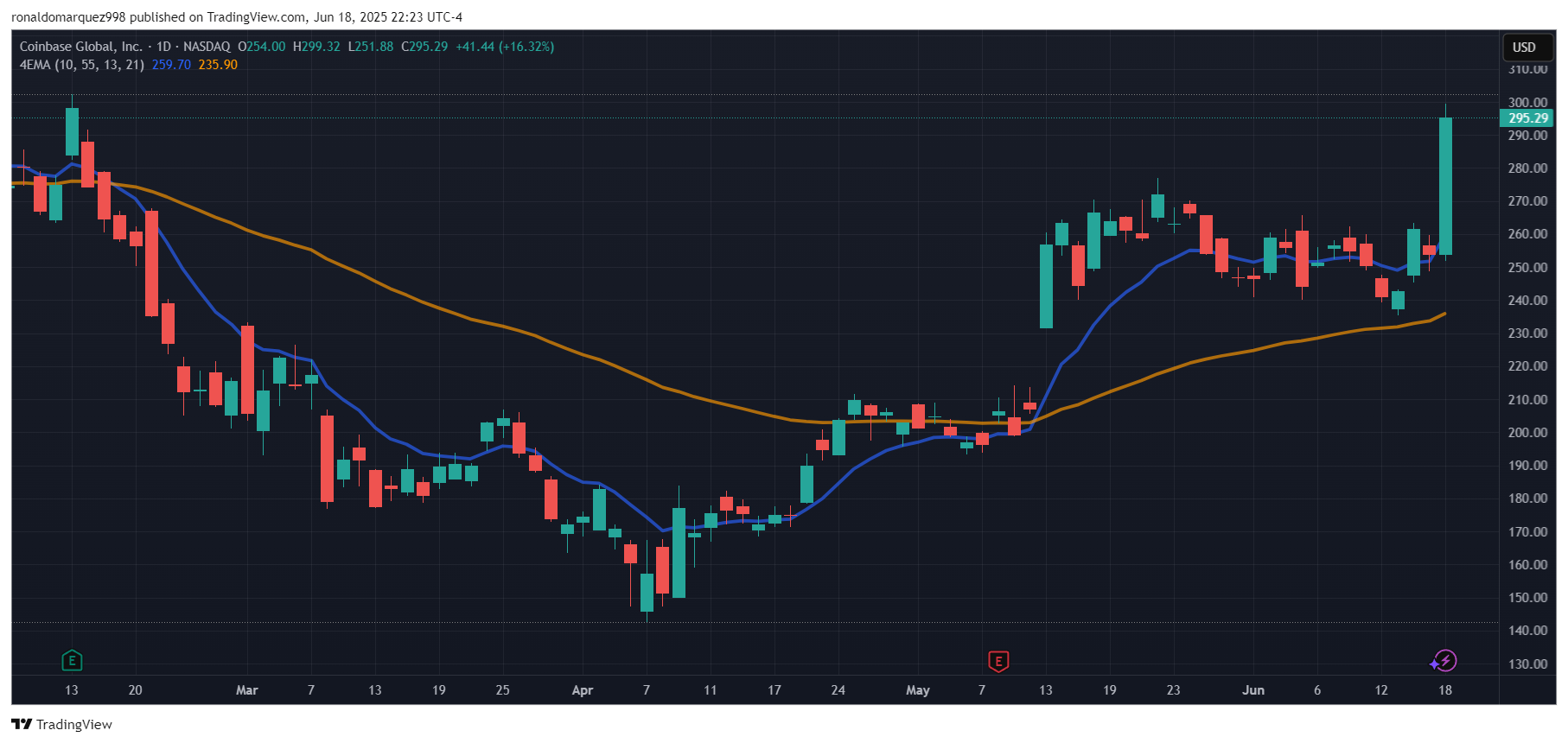JPMorgan Chase, the largest bank in the United States, is making significant strides in the cryptocurrency space with the upcoming launch of its own digital currency, known as JPMD.
Announced on Tuesday, the bank plans to pilot JPMD in collaboration with US-based cryptocurrency exchange Coinbase, signaling its commitment to innovating within the financial sector.
A New Era Of Deposit Tokens?
As Fortune highlighted, unlike stablecoins, which many had anticipated, JPMD will function as a deposit token—a digital version of a bank deposit managed through blockchain technology.
This distinction is crucial, as it positions JPMD uniquely within the crowded cryptocurrency landscape. Over the weekend, the bank filed for a trademark on the name “JPMD,” further solidifying its intentions in the digital currency arena.
Jesse Pollack, Coinbase’s Vice President of engineering, stated, “This pilot combines the credibility of both JPMorgan and Base to help bring institutional money into a more global economy.”
The token is designed to facilitate seamless transfers and enable cross-border business-to-business payments on Base, a public Ethereum-based blockchain managed by Coinbase.
Naveen Mallela, global co-head of JPMorgan Chase’s blockchain division, emphasized the bank’s belief in a token-based solution on public blockchains, underscoring the strategic importance of this launch.
JPMorgan Expands Cryptocurrency Services
The decision to create a deposit token instead of a stablecoin stands out in the current corporate trend, where companies like Meta and Google are gravitating towards stablecoins for their payment systems.
Stablecoins, such as Tether’s USDT and Circle’s USDC, are typically utilized by retail clients for trading, remittances, and as a store of value. In contrast, Mallela explains that deposit tokens are more suited for institutional clients, as they are issued by licensed banks, ensuring better integration into existing financial systems.
“Institutional clients can treat JPMD as bank deposits on their balance sheet, providing certainty around financial and accounting treatment,” Mallela noted, highlighting the stability and reliability that accompanies bank-issued digital assets.
This move aligns with JPMorgan’s broader strategy to expand its services within the cryptocurrency market. The bank is set to allow clients to use spot Bitcoin exchange-traded funds (ETFs), including BlackRock’s iShares Bitcoin Trust (IBIT), as collateral for financing.
This new policy will have a global application, catering to both retail and institutional clients alike. By recognizing clients’ holdings in crypto ETFs as part of their net worth and liquidity calculations, JPMorgan is effectively positioning these digital assets alongside traditional investments such as stocks and real estate in financial assessments.

As of this writing, Coinbase’s stock (trading under the ticker symbol COIN on the Nasdaq) had one of its best days of the year, closing at $295 — a significant 16% increase in less than 24 hours of trading.
Featured image from Bloomberg, chart from TradingView.com



